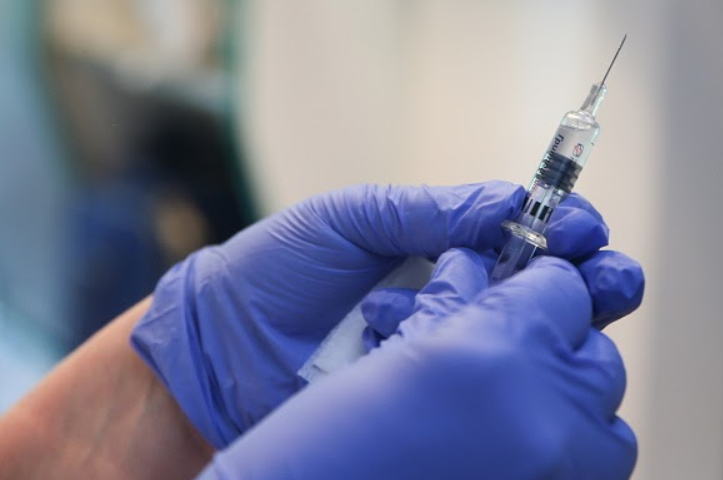Fewer young people in Brighton and Hove received the jab which prevents meningitis last year than before the pandemic, new figures show.
Health officials have warned that some young people are at risk of potentially deadly meningitis and blood poisoning after a fall in vaccine coverage among teenagers locally and across the country.
UK Health Security Agency figures show 67.3 per cent of year 9 students in Brighton and Hove had the MenACWY vaccine in the 2021-22 academic year. The jab protects against four strains of the meningococcal bacteria.
The take up is a significant fall from 81.5 per cent in 2018-19, the last academic year before the coronavirus pandemic.
And the figures for remain Brighton and Hove remain below the national take up rate. Across England, uptake of the vaccine has fallen from 88 per cent in 2018-19 to just 69.2 per cent last year.
Vanessa Saliba, consultant epidemiologist at the UK Health Security Agency, said: “In recent years we have seen vaccine uptake fall due to the challenges posed by the pandemic.
“Many young people who missed out on their vaccinations have already been caught up but more needs to be done to ensure all those eligible are vaccinated.”
Dr Saliba added: “These vaccines offer the best protection as young people start their journey into adulthood and mixing more widely, whether going to college, starting work, travelling or going to summer festivals.”
There has also been a nationwide decline in take up of the 3-in-1 vaccine – which protects against tetanus, diphtheria and polio. The rate fell from 87.6 per cent among year 9 students pre-pandemic to 69 per cent last year.
The rate were lower in Brighton and Hove, with uptake of the 3-in-1 booster dropping from 80.2 per cent in the last pre-pandemic school year to 66.7 per cent last year.
Health Minister Maria Caulfield, a former member of Brighton and Hove City Council, said: “It’s incredibly important for children to stay up to date with routine vaccinations as this remains one of our best defences against infectious diseases, not just for the person being vaccinated but for their family, friends and those around them.”
She urged parents to speak to their school nurse, school immunisation team or GP surgery to book an appointment if their children are not vaccinated.
Last month, Unicef said that about 67 million children around the world did not receive routine jabs from 2019 to 2021.
The international children’s body added that overall support for vaccines remains “relatively strong” but several factors suggested the “threat of vaccine hesitancy may be growing”.










Unlike the COVID vaccine this has undergone trials and normal approval for use. It is also not an mRNA vaccine.
The failure to address the nature of experimental vaccine unleashed on humans continues to engender mistrust with all vaccines.
Chris, this is unfortunately not completely true. Foundational work had already been done with several previous cornaviruses such as SARS and MERS, allowing a more rapid progression than if it was completely novel.
History has taught us that misinformation has been the primary factor in causing mistrust in vaccination, only having to look at the Andrew Wakefield and the effect had on causing mass hysteria.
I think that was the precept on wich we proceeded to use these vaccines. However there have been unintended consequences and unexplained deaths. Studies are ongoing but some peer reviewed studies/pathology reports are showing residual mrna and spike protein production in organs where there should not be any (Heart, Brain, Artries). People are not yet ready to discuss in public and those that put their head above the parapet are censured by the press, quoting “misinformation”. However when misinformation is conflated with scintific facts emerging – and there is plenty out there on offical journal websites, a discussion really needs to be had. Like many I think that Mrna vaccines will prove to be a very useful tool but I think there is a way to go yet. More research is needed. However people who do not understand the difference will just hear “vaccine” and “death”. They will not engage with you becuase they just will not talk to you about it. Even explaining that all other vaccines licenced for use in the west are NOT Mrna vaccines might save lives..
A very well reasoned retort, and absolutely continued discussion and research should always be a priority going forward to deepen our understanding.
Public understanding is also an interesting aspect tangentially; something the strikes have shown was a reduced number of calls to the ambulance service that may be considered inappropriate, which then rebounded after the strikes were over, almost to the minute.
We could benefit from a way of discussing healthcare in a way that makes the phantasmagoria of research out there palatable to all.